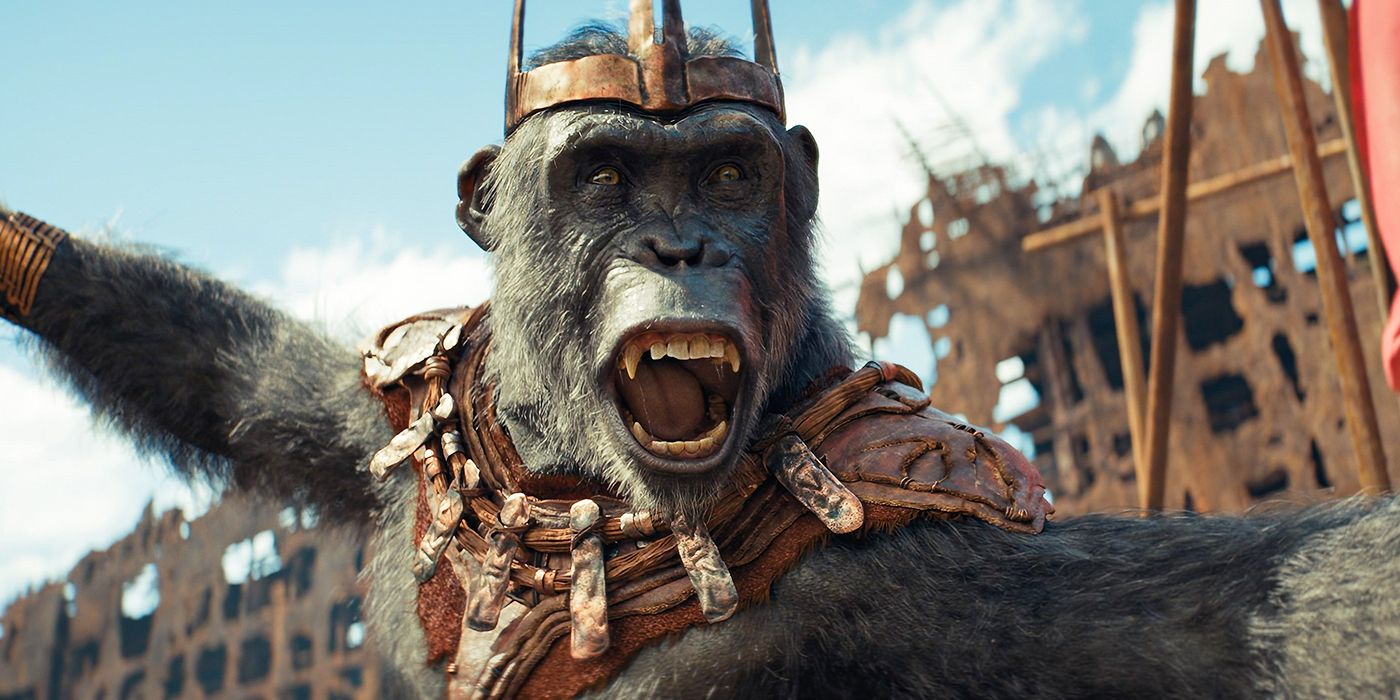The Planet of the Apes movies have entertained audiences for many years, from Charlton Heston’s movie in 1968 to the very “interesting” re-imagining of the “Planet of the Apes” movies by Tim Burton and the recent trilogy featuring James Franco and Andy Serkis as Caesar. Despite this series being one of the longest sci-fi series in film history…I have not watched a single movie! So how does Kingdom of the Planet of the Apes (Directed by Wes Ball and written by Josh Friedman) hold on its own? And is it a good starting movie for someone coming into this franchise blind?
The movie begins 300 years after the death of Caesar and the events of the “Rise of the Planet of the Apes” trilogy. Apes have become the dominant species and humans have become the lesser species. We follow a young Chimpanzee named Noa and his two friends Anaya and Soona, who live in a peaceful tribe of Eagle herders, and the apes are roaming through the jungle for eagle eggs for their coming-of-age ceremony.
However, things take a turn as a human follows the group home and accidentally breaks Noa’s egg. Seeking approval from his father, Noa goes out and tries to find another egg in the middle of the night. When doing this he draws attention to ape raiders, who find his clan and kidnap his family, his friends, and the whole village. Noa now must embark on a journey with the help of some unlikely companions to save his clan and bring it home.
As someone new to this world I must say I was not confused when watching the movie. While there are references to Caesar in the previous films, the way that they are told to Noa is like legends passed down through generations, mirroring how myths and religions are passed down in our world. Having the previous movies explained or referenced this way not only prevents long dialogues of exposition, but it also becomes a part of the world-building and that this ape society has existed for centuries. And just like any belief system like religion, legends, and myths, people in this case apes can interpret stories in their way to fit their agenda. We see this with the main antagonist of the film, an ape named King Proximus played by Kevin Durand, who enslaves and oppresses other apes to do his bidding all in the name of Caesar.

This film is set up as a hero’s journey with Noa played by Owen Teague as the main character, replacing Cesar from the previous films. We see Noa tackle his worldview as he goes on this journey to save his family and friends but he also goes through a journey of self-discovery. King Proximus was also great as the villain, as a menacing, chillingly delusional leader figure. The acting was so impactful because the FX and mo-cap technology allowed the actors to embody their characters. Their expression and emotions truly connect making them feel real and relatable like a human actor.
But I enjoy that this is not a human-based story, it’s not about the humans trying to survive this ape-dominated world like the previous movies have done. This movie was about the apes and telling a story through their eyes. Watching this movie also made me realize how visually beautiful this movie is with the breathtaking cinematography that brings this world to life. You see how human characters and the CGI apes blend seamlessly. It surprises me that none of these movies has ever won an Oscar for visual effects.
Overall this movie was excellent, the pacing did feel a bit slow at the beginning but it served a purpose and I did not mind it. It allows the world and its characters to be established, especially for newcomers like myself. I am look foward to see what the next movies in this trilogy does and check out the older movies in this franchise.

Staff Writer & Media Critic for Big Gold Belt Media: NYC Actress | Twitch Streamer | Artist


